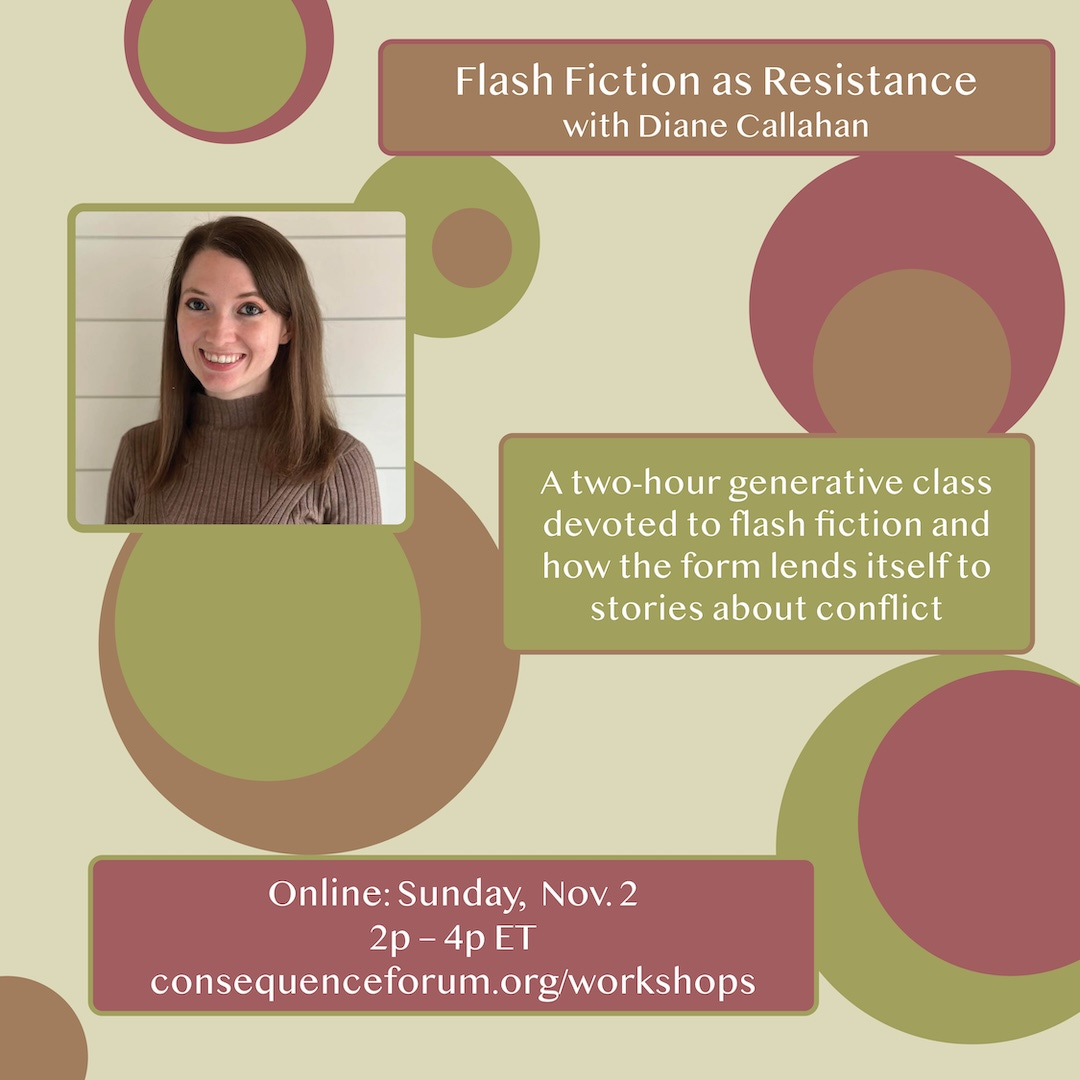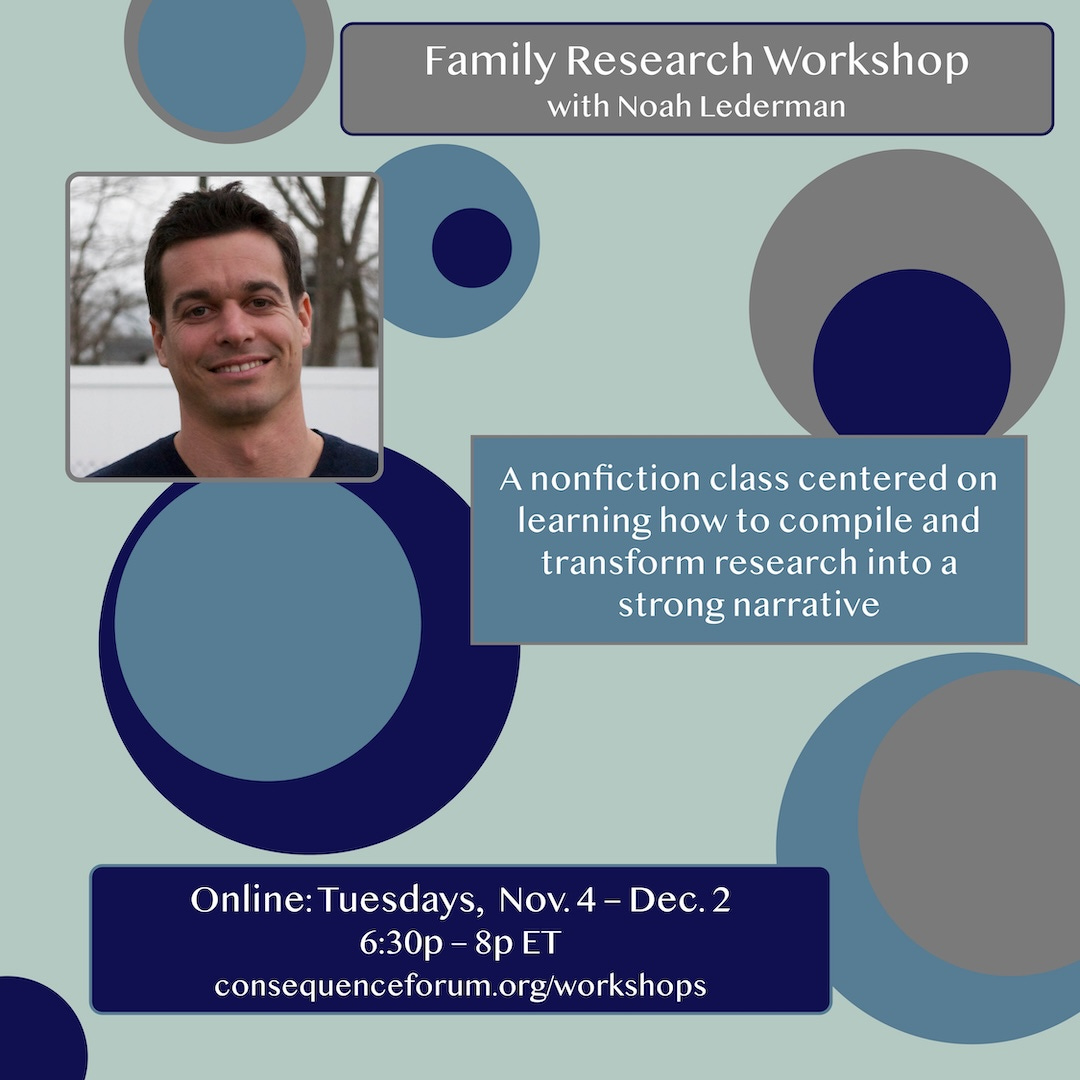Last Two Workshops of the Year: Flash Fiction & Nonfiction
Friends,
We have two workshops coming up. Each is designed to help those who want to sharpen their writing skills, discuss craft and project ideas, and find potential new writing groups.
Also, please note that we offer both a sliding scale and a reduced rate for those who can’t make a class but would like to have access to the video recordings.
For more info on these discounts or if you have any questions about the classes, please email me at info@consequenceforum.org.
Thanks, and I hope you are all well.
Matthew Krajniak
Executive Editor
Flash fiction can feel intimidating as a form. How can a writer convey a full story or emotion in under a thousand words? And how can we do justice to war and geopolitical violence in such a short space? As flash fiction aficionado Kathy Fish observes, “Flash fiction, I believe, is its own unique literary form, not merely a short story in miniature. Given its limited word count, flash lends itself well to innovation and experimentation.”
In this two-hour intensive, we’ll explore the power of flash through examples of published work from Consequence and writing prompts tailored to help you create a new piece around themes of conflict. We’ll discuss how flash can be a tool for resistance through hyperfocus on a particular image or the use of inventive structures. Through the compression of language, writers can communicate nuanced ideas and experiences that lend themselves to rereading.
By the end of this intensive, students will have
1. A draft or outline of a new flash fiction piece themed around the human consequences of war or geopolitical violence
2. Developed an understanding of at least three tools for approaching flash fiction as a genre
3. A deeper understanding of the purpose and possibilities of flash
All levels of writers are welcome.
Click to learn more or to register:
Quite often, we look back on the conversations that we never had with people in our lives who have now passed on, or we put off interviews with living relatives or acquaintances because the topics feel too sensitive or we are not certain where to begin (for example, if they have experiences with loss related to conflict). This course will explore how to access the stories of friends, family, or strangers who may not have left recorded testimony in their lifetime, or it will help writers discover entry points into another person’s history.
We’ll create this narrative through discussing and developing skills related to a variety of research strategies including
~Conducting interviews (especially when discussing sensitive topics)
~Digging through archival materials efficiently
~Researching contemporaneous news articles
~Locating people and groups online
~Creating a system to file and record research
We’ll also discuss and develop skills related to the craft of writing these narratives through
~Analyzing how other authors have told family narratives
~Analyzing choices required when crafting such pieces especially as they relate to fiction vs. nonfiction, researcher as a character, handling point of view of real characters, and managing conflicting accounts.
~Using a newspaper article or interview to show how to create a narrative from primary source documents.
~Doing writing exercises to develop early ideas and hone your story.
~Workshopping stories students bring to class
By the end of this class, registrants will have a strong sense of how to research and tell the story of a person of interest.
Writers of all levels are welcome.
Click to learn more or to register:




